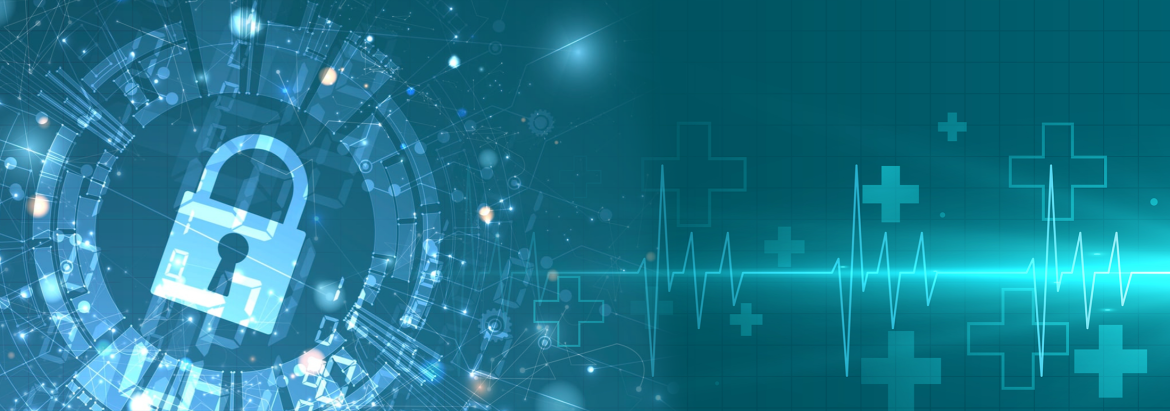
AIOps Enabled Cybersecurity in Healthcare


The healthcare industry has gone through a major digital transformation. From electronic patient records to online consultancy, a lot has changed in the healthcare industry. With accelerating digitization in the healthcare industry, cybersecurity risks are more powerful than ever. Every hospital is now searching for a reliable healthcare cybersecurity risk management technology. Recently, many healthcare organizations have started using AI-led solutions for security & compliance. AIOps is making waves in the healthcare industry for its role in preventing cyberattacks. Continue reading to know how cybersecurity can be boosted in healthcare with AIOps (Artificial Intelligence for IT Operations).
Gone are the days when healthcare organizations used paper documents for storing information. At present, the healthcare industry is adopting digital transformation strategies. As healthcare goes digital, cybersecurity threats knock on the door. Your IT network opens the door to many cyber-attacks like phishing attacks, DOS attacks, and selective forging. The taxonomy of cyber-attacks is increasing regularly, and healthcare entities are finding them challenging. With an outdated technology stack, healthcare organizations are unprepared when it comes to detecting and eliminating cybersecurity threats.
Age-old healthcare-managed security services cannot handle the complexity of sophisticated cyber-attacks. It is why the healthcare industry is counting on new-age technologies to safeguard its IT infrastructure. AI/ML has played a major role in addressing the challenges of modern-day cyberattacks. Some of the challenges faced by the healthcare industry in preventing cyberattacks are as follows:
As you can see, there are several cybersecurity challenges in front of healthcare organizations. The use of artificial intelligence in healthcare has started to address these challenges. Many healthcare organizations have already boosted their service availability with the help of AIOps. Let us see the role of AIOps in addressing these cybersecurity challenges.
AIOps-based cybersecurity solutions can provide real-time alerts for security breaches. Security & compliance are boosted with AIOps while requiring minimal human intervention. How AIOps boosts cybersecurity in healthcare is as follows:
A large healthcare organization has many dedicated software systems to ensure cybersecurity. The real challenge is to monitor the performance of those software systems responsible for cybersecurity. If any cybersecurity system goes down, the service availability of a healthcare organization can be disrupted. AIOps can help you know more about your crucial software systems responsible for cybersecurity. You gain observability into your IT infrastructure with an AIOps-led cybersecurity solution.
Breaking data silos is the demand of the hour for the healthcare industry. You need user activity data to make sure an authorized patient is accessing electronic health records. You need infrastructural data to find any anomaly in the performance of software systems. Similarly, you need incident data to monitor the IT incidents that can be a threat to your organization. An AIOps based analytics platform can bring all types of healthcare data together. With a single pane of glass view, healthcare organizations can gain control of their cybersecurity processes.
Every large healthcare organization has a dedicated IT infrastructure. As new digital transformation services and solutions arrive, the IT infrastructure becomes more complex. Traditional monitoring systems may generate thousands of IT alerts in a single day. Sometimes multiple alerts can be generated for the same cybersecurity threat. For example, your cybersecurity solution may generate two alerts for a single unauthorized entry point in your digital health records. How do healthcare organizations identify redundant security alerts?
Even if you identify redundant security alerts, you must prioritize the alerts based on their effects. AIOps based analytics platforms can prioritize the security alerts based on their impact on the healthcare organization. Consider a scenario where a DOS attack is preventing your doctors from accessing patient details. At the same time, an unauthorized entry is detected on your organization’s website. In such a scenario, you need to solve the DOS attacks first to increase service availability.
Besides the benefits mentioned, AIOps can also help you with intelligent threat detection, automation in cybersecurity, identity management, and performance degradation detection. In recent years, many healthcare organizations have used AIOps for security & compliance. With AIOps, you can eliminate cyber threats proactively with minimal human intervention. Also, your IT infrastructure will become more resilient in this era of sophisticated cyberattacks. Start using AIOps for security & compliance in healthcare!
Please complete the form details and a customer success representative will reach out to you shortly to schedule the demo. Thanks for your interest in ZIF!